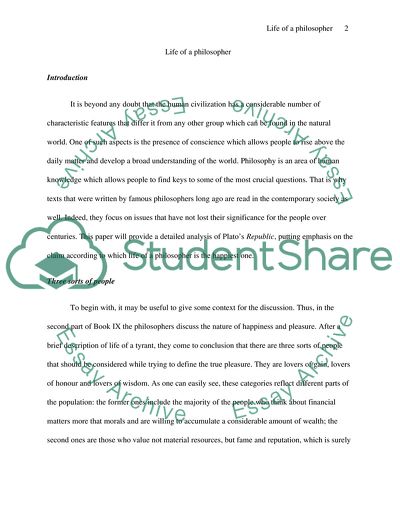Cite this document
(Life of a Philosopher Essay Example | Topics and Well Written Essays - 2500 words, n.d.)
Life of a Philosopher Essay Example | Topics and Well Written Essays - 2500 words. https://studentshare.org/philosophy/1857919-evaluate-the-arguments-put-forward-in-platorepublic-9-for-the-view-that-the-philosophers-life-is-the-happiest
Life of a Philosopher Essay Example | Topics and Well Written Essays - 2500 words. https://studentshare.org/philosophy/1857919-evaluate-the-arguments-put-forward-in-platorepublic-9-for-the-view-that-the-philosophers-life-is-the-happiest
(Life of a Philosopher Essay Example | Topics and Well Written Essays - 2500 Words)
Life of a Philosopher Essay Example | Topics and Well Written Essays - 2500 Words. https://studentshare.org/philosophy/1857919-evaluate-the-arguments-put-forward-in-platorepublic-9-for-the-view-that-the-philosophers-life-is-the-happiest.
Life of a Philosopher Essay Example | Topics and Well Written Essays - 2500 Words. https://studentshare.org/philosophy/1857919-evaluate-the-arguments-put-forward-in-platorepublic-9-for-the-view-that-the-philosophers-life-is-the-happiest.
“Life of a Philosopher Essay Example | Topics and Well Written Essays - 2500 Words”. https://studentshare.org/philosophy/1857919-evaluate-the-arguments-put-forward-in-platorepublic-9-for-the-view-that-the-philosophers-life-is-the-happiest.


